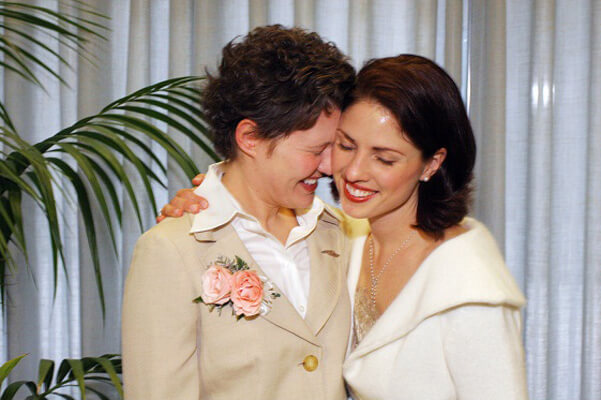A seven-judge chamber of the European Court of Human Rights (ECHR) in Strasbourg has ruled that Italy’s failure to adopt a legal structure for same-sex relationships, such as a civil union or registered partnership similar to those in Austria and Germany, violates Article 8 of the European Convention for the Protection of Human Rights and Fundamental Freedoms, a treaty to which 47 European countries are signatories.
The July 21 ruling in the Case of Oliari and Others v. Italy, brought a unanimous conclusion, but the panel of judges was split 4-3 about the appropriate analysis. Italy may petition for review by a larger panel of judges, called a Grand Chamber, before this decision becomes final.
The court was ruling on claims filed by three same-sex male couples — one from Trent and the others from Milan — who tried to get married, were turned down, and then sought relief without success in the Italian judicial system. The couples’ cases before the ECHR have been pending since 2011.
Whether unanimous ruling establishes general precedent for continent’s other countries is unclear
Ironically, after the couples turned to the European Court for redress, Italy’s Constitutional Court ruled the nation is obligated to create a legal structure akin, even if not identical, to marriage for same-sex couples, but to date the parliament has not acted on this mandate. Several municipalities have created same-sex partner registries, but they are primarily symbolic since local governments cannot create legally enforceable rights under national law. It’s also worth noting that in Italy, as in Europe generally, cohabiting couples, whether different-sex or same-sex, have in recent years been accorded several substantial rights in the absence of a formal legal relationship.
Jurisprudence under the European Convention relies heavily on analyzing broadly-worded guarantees in light of emerging trends among the member nations, and in this regard the court noted that 11 members — Belgium, Denmark, France, Iceland, Luxembourg, the Netherlands, Norway, Portugal, Spain, Sweden, and the United Kingdom — now allow same-sex marriages (and both Ireland and Finland recently approved marriage equality which has not yet gone into effect). A total of 18 European nations provide some form of civil partnership for same-sex couples, including some that also allow for marriage. By the ECHR’s reckoning, 24 of the Convention of Europe’s 47 members offer same-sex partners some form of legal recognition.
With a majority of member nations now extending legal recognition to same-sex couples, the court is in a position to decide that it has become enough of a norm for the European Convention to come into play. In interpreting the Convention, the court seeks to balance the autonomy and discretion granted to member nations against the importance of the right under consideration. And when the court rules, it is up to the member nations to respond through their own legislative and judicial mechanisms. Court rulings are more than merely advisory opinions, because they are authoritative statements of treaty obligations, but compliance remains under the purview of individual member states.
In the recent past, the ECHR ruled that Greece violated the Convention when it established a civil union system but excluded same-sex couples. But it also found that Austria had not violated the Convention by failing to open up marriage to same-sex couples, and that its adoption of a civil union law met the its requirement of “respect for private life and family.” Referring to these recent decisions, the July 21 ruling stated, “The Court reiterates that it has already held that same-sex couples are just as capable as different-sex couples of entering into stable, committed relationships, and that they are in a relevantly similar situation to a different-sex couple as regards their need for legal recognition and protection of their relationship. It follows that the Court has already acknowledged that same-sex couples are in need of legal recognition and protection of their relationship.”
The willingness of Italian courts to enforce cohabitation contractual agreements made by same-sex couples was not seen as sufficient in the way that the Austrian civil union law was. The court rejected the Italian government’s argument that same-sex couples should be relegated to litigating about particular legal claims as they arise.
“In the Court’s view,” the ruling stated, “the necessity to refer repeatedly to the domestic courts to call for equal treatment in respect of each one of the plurality of aspects which concern the rights and duties between a couple, especially in an overburdened judicial system such as the one in Italy, already amounts to a not-insignificant hindrance to the applicants’ efforts to obtain respect for their private and family life. This is further aggravated by a state of uncertainty.”
The court asserted that enacting a law “to provide for the recognition and protection of same-sex unions” would “not amount to any particular burden on the Italian State be it legislative, administrative or other. ”
Italy, the European court found, was not arguing that granting legal recognition to same-sex couples threatened “the original concept of the family or the morals of society.” Instead, it simply argued for more time to consider what an appropriate legal framework might be.
Then pointing to both the mandate of Italy’s Constitutional Court and to the overwhelming popular support for civil unions there, the court observed, “The Italian legislature seems not to have attached particular importance to the indications set out by the national community, including the general Italian population and the highest judicial authorities in Italy.”
The “margin of appreciation” the court offers in deference to member state autonomy and discretion, consequently, is not due Italy in this case, the ECHR concluded. “To find otherwise today,” the ruling stated, “the Court would have to be unwilling to take note of the changing conditions in Italy and be reluctant to apply the Convention in a way which is practical and effective.”
As it had with Austria, however, the court said that there was not yet sufficient consensus among European nations to require Italy to adopt marriage equality.
Though the ECHR ruling was unanimous, three of the seven judges adopted a narrower approach than the majority, emphasizing that the Italian government had erred in failing to carry out its obligations with regard to its own Constitutional Court. This narrower approach would leave unaddressed the question of whether other nations that signed the Convention but have not yet adopted civil union laws are obligated to do so.
A close reading of the majority opinion, however, shows that it too is very much grounded in developments on the ground in Italy, including the Constitutional Court ruling, public opinion, and the registries adopted in some municipalities. Consequently, it’s not altogether clear that even the majority opinion firmly establishes a general obligation for all nations that signed the Convention to adopt civil union laws immediately.
Still, the opinion strongly intimates that as the number of European countries with such laws continues to increase, the obligation of signatories to move in accord with the emerging European norm is growing.
































